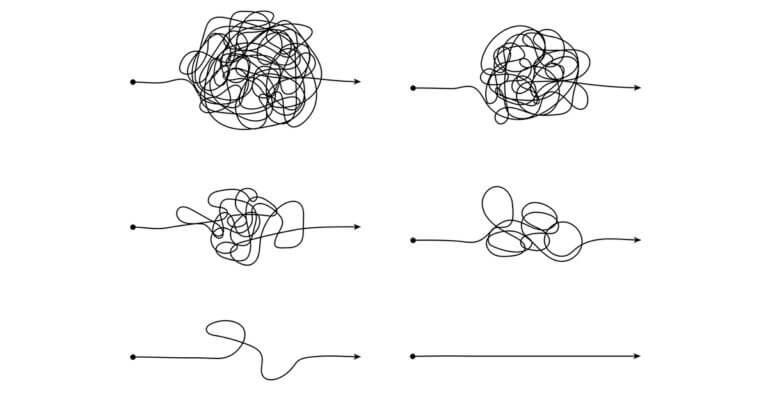June 17, 2015

Chasing Colonoscopies: It’s the Customer, Stupid!
Who knew a routine colonoscopy could illuminate the wild world of healthcare consumerism?
Before getting to my story, let’s examine the current state of colonoscopies in America.[1]
Colonoscopies are the most expensive way to detect colon cancer. Ten million Americans annually undergo colonoscopies at a cost approximating $10 billion.
Colonoscopy prices vary widely. According to the 2012 report by the International Federation of Health Plans, the average U.S. colonoscopy price was $1,195. The 25th percentile price was $536 and 95th percentile price was $2627. Higher prices incorporate higher facility costs, but do not improve outcomes. Procedures performed in hospitals and surgery centers are more expensive than those performed in doctors’ offices.
Katie Couric and the Rise of Colonoscopies
Prior to 2000, colonoscopies were rare. That year, newscaster Katie Couric had a live colonoscopy on the Today Show. After her husband’s death from of colon cancer, Couric became a prominent advocate for colorectal screening.
Also in 2000, the American College of Gastroenterology announced that colonoscopies were “the preferred strategy” for preventing colon cancer. Heavy lobbying followed and Congress directed Medicare to pay for regular colonoscopy screenings. Commercial insurers followed Medicare’s lead and colonoscopies became standard preventive care for people over fifty.
Performing colposcopies is lucrative. Gastroenterologists are among America’s highest paid physicians with average salaries in 2009 of $433,000.[1] Anesthesiologists also benefit financially from colonoscopies even though a RAND study found no medical justification for their high-cost services with healthy patients.
As preventive care, most insurers (including Medicare) cover the entire cost of colonoscopy procedures. Patients bear limited or no payment responsibility and have been indifferent to the procedure’s wide price variation. That is changing.
An Anal Odyssey
In early November, I had my annual medical check-up. My primary care physician noted I was overdue for a colonoscopy. He subsequently gave me an order for the procedure and a phone number to schedule it.
As my colonoscopy story unfolds, note the following: first, my family has a history of colon cancer; and secondly, my wife and I had just enrolled in a high-deductible health plan (“HDHP”) for 2015; and finally (as in Dragnet) I have changed participant names “to protect the innocent.”
Stop #1: Dominant University Hospital (“DUH”)
The next day I called DUH’s GI Clinic. Before scheduling the procedure, the receptionist spent ten minutes recording my medical history. After a few minutes, I suggested she take necessary medical information from DUH’s electronic medical record. She demurred insisting their doctors needed relevant information presented in a uniform way. I persisted, but she held all the cards. We finished the interview. Talk about patient (dis)empowerment!
With my medical information recorded, we turned to scheduling. The first available appointment was St. Patrick’s Day – almost five months away. If I had colon cancer, I didn’t want to wait that long to learn about it. With the HDHP beginning on January 1st, I also wanted the procedure done in 2014 to avoid paying the HDHP’s high deductible.
Hitting a brick wall, I became DUH’s worst nightmare, a loyal customer seeking treatment outside their network.
Stop #2: Awesome Community Health Enterprise (“ACHE”)
ACHE had a hospital near me, so I called general information to schedule a colonoscopy appointment. DUH’s only consolation is that ACHE’s customer service was even worse. It took five more calls to get to the right scheduling location, a GI practice associated with the hospital.
The office manager asserted they could complete the procedure in 2014, but not until I scheduled an evaluation exam with one of their specialists. Since the procedure was routine and I already had medical authorization, seeing the specialist was a waste of time. She insisted. I persisted believing the only “benefit” was incremental income to the specialist.
I finally said “thanks but no thanks.” She scheduled the evaluation exam anyway. I know because I received a “robo-call” reminder the next week.
Stop #3: Yelp and Dr. Avis Goodheart
Now what? The two biggest institutions near me couldn’t meet my needs. I checked my health insurer’s website for GI doctors, but found no useful information. Finally I went to Yelp and found Dr. Avis Goodheart, a local gastroenterologist with three five-star ratings.
The Yelp ratings didn’t give me confidence. A recent U.S. News commentary observed that on-line physician ratings are highly unreliable.
Not knowing what else to do, I called her office. She came to the phone, agreed the procedure was routine (no preliminary exam needed) and offered me Thursday and Saturday dates in December. That’s right, Saturdays! Her patients are often busy during the week and Saturday procedures make their lives easier. You could have knocked me over with a feather.
The procedure went smoothly. Dr. Goodheart gave me photos of my clean colon and called me herself that afternoon to make sure I was recovering well.
Shouldn’t this be everyone’s experience? It will be.
Somewhere in America
The Avis Goodhearts are out there. Imagine a group of consumer-oriented GI doctors delivering a seamless, personalized colonoscopy experience tailored to customers’ needs, schedules and preferences. They’ll rent procedure space at bargain rates from facility-heavy companies like DUH and ACHE. They’ll answer all questions with a smile. They’ll publish their prices and guarantee their work.
Imagine data companies crunching billions of medical records and customer surveys to align customers’ medical needs with prospective doctors. ZocDoc and MD Insider are already doing this. Their recommendations will only get better.
Imagine consumers discovering better, cheaper and more convenient colonoscopy centers. Katie Couric will become their champion.
Demanding consumers, customer-oriented providers and user-friendly information companies have enough market power to reconfigure healthcare’s distorted supply-demand relationships. DUHs and ACHEs of the world beware.
Right Care. Right Time. Right Place.
Colonoscopies have become commodity care. They’re routine, predictable and standardized. The following matrix identifies care delivery models based on their duration and uncertainty
Each quadrant requires a different business model to compete in post-reform healthcare. One size will not fit all. Like colonoscopies, the majority of acute care treatments and procedures are routine and subject to commoditization.
As products and services commoditize, consumer perceptions of quality shift from outcomes to speed, convenience and price. Health companies that understand commodity care will transform their operations to deliver better care at lower prices in customer-friendly venues.
Organizations like DUH and ACHE that cannot schedule routine procedures quickly and/or require unnecessary preliminary exams must adapt or die. Winners differentiate. Value rules.
Mental Models
The astronomical growth in the number and cost of colonoscopy procedures reflects a regulatory mindset where the managerial objective is to maximize revenues. Customer needs are secondary considerations. This mental model dominates healthcare delivery.
A market mindset seeks to maximize sales by finding the optimal relationship between prices and value. Customer needs and perceptions are the principal considerations. Apple has become the world largest company by making its products desirable, affordable and accessible to consumers.
2020 News Flash
Dr. Avis Goodheart, CEO of fast-growing Excel Colon Care, announces her company will offer $400 colonoscopies seven days a week at Walmart stores nationwide
[1] ibid
[1] Source: The $2.7 Trillion Medical Bill by Elisabeth Rosenthal, New York Times, June 1, 2013





